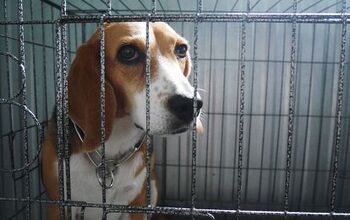It’s Official: FBI Actively Tracking Animal Cruelty Cases Across U.S

It’s a great start to the year, because in 2016, the Federal Bureau of Investigation will begin tracking data on animal cruelty cases and while law enforcement and animal advocates’ reasoning differ, both agree that the information will be beneficial.
The FBI teamed up with the National Sheriffs’ Association as well as the Animal Welfare Institute to track and record these cases within the National Incident-Based Reporting System (NIBRS), which is the FBI’s collection of national crime stats.
Related: FBI Deems Animal Cruelty a Top Tier Crime
The reason why this is so significant is because now, animal cruelty has their own category in the NIBRS, making it incredibly easy to find (and track) these cases. In the past, animal cruelty cases were dumped in the “other crimes” folder, which meant killing a dog would be in the same boat as, let’s say, spitting. Not only is there a need for separating these offences, as they are clearly on different scales of the douche meter, but now it is possible to be on the lookout for possible future violent offenders.
U.S. studies (and studies in other countries) show that 63 to 70 percent of individuals convicted of violent crimes began their vicious careers with acts of animal cruelty. In a 2015 report conducted by the New York State Humane Association, Dr. Harold Hovel said “serial killers are closely linked to animal cruelty cases” and he’s absolutely right- just think about it. If someone has no compassion or empathy for animals, s/he isn’t likely to be any kinder towards human beings. By tracking animal cruelty cases now, law enforcement can identify violent hotspots within the country in the near future and strengthen prosecutor cases.
Related: New York City Takes Small Step Forward By Starting Animal Abuser Blacklist
For animal advocates, the benefits of tracking animal cruelty cases are just that: they are able to pin point where animal cruelty cases are common within the country. Also, because the categories are separated within the NIBRS, animal cruelty is taken much more seriously than a spitting case. This reflects the FBI’s belief that animal safety is important and, in turn, makes law enforcement and the community pay attention to this crime.
[Source: CSmonitor]

More by Diana Faria






















